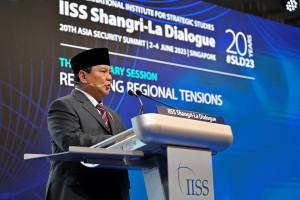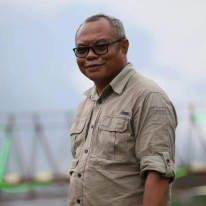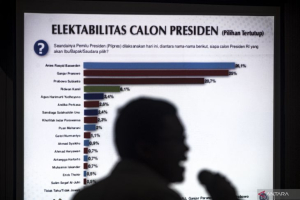US, India, and Czechia aicrafts violated Indonesian airspace linked to Singapore FIR agreement
A number of foreign aircrafts violated Indonesian airspace that are linked to Singapore’s FIR agreement with Indonesia and the weakness of Indonesia air defenses.
US, India, and Czechia aircrafts entered Indonesian airspace illegally
Admiral Yudo Margono, General of the Indonesian Armed Forces (TNI), revealed that Indonesia's air borders are frequently intruded by foreign aircraft.
A number of aircraft, both military and civilian, frequently violate Indonesia's air borders in the period from January to June 2023. The aircrafts came from a number of countries such as the United States, India and Czechia.
Yudo conveyed this issue at a Consultation Meeting between the Leaders of the House of Representatives of Indonesia and the government to evaluate the implementation of the management of state borders.
Yudo explained that 8 violations were recorded from United States (US) military aircrafts and 3 civilian aircrafts, and 2 violations carried out by military aircrafts from India, and 1 civilian aircraft from Czechia.
"From these data, the violation occurred 13 times, in Singapore's FIR [Flight Information Region] over the Riau Islands [Riau Islands] and once in Medan's Kosek [Sector Operations Command] I airspace," he said.
He also explained the situation at the Indonesian border, where many border signs were damaged and missing, and urged the relevant parties to resolve the issue.
"This is important so that TNI soldiers are more optimal in carrying out border security duties," said Yudo.
Apart from that, he said, the TNI's supervisory ability was limited because it was faced with arduous and wide terrain.
He added that in border areas of Indonesia, there are limitations to supporting infrastructure such as access roads, electricity, water, as well as limited sensors and equipment.
"This has an impact on the emergence of several blind spot areas that we cannot monitor closely," he explained.
"The socio-cultural complexities of the people in the border areas regarding customary law, economic disparities with neighboring countries, the influence of traditional leaders and religious leaders have caused prolonged problems," said Yudo.
FIR Agreement with Singapore
On September 8, 2022, the Government of Indonesia ratified the FIR Borderline Adjustment Agreement signed on January 25, 2022.
This agreement is cursory to maintain the sovereignty of Indonesia's airspace. However, in fact some of the articles are burdensome to Indonesia, and regulated in a limited way.
The agreement obligates Indonesia to delegate air navigation services to Singapore within the Indonesian FIR, relinquishing part of its sovereign rights.
It also highlights the lack of provisions ensuring diplomatic and security clearance procedures for unscheduled foreign aircraft flying in Indonesian airspace delegated to the Singapore FIR.
Pointing out missed opportunities to prioritize Indonesian military flights and the long duration of the agreement, which limits Indonesia's ability to manage its airspace independently.
Indonesia's air defense is weak
It is known that based on a report from the National Winning Agency (Badan Pemenangan Nasional - BPN) of Prabowo Subianto and Sandiaga Uno in 2019, said that the condition of Indonesia's air radar was still weak.
"We found that the condition of Indonesia's air radar is still far from 100%," said Rizal Darma Putra, BPN Expert Council.
At that time Rizal criticized Joko 'Jokowi' Widodo's submission regarding the coverage of Indonesian air radar which was claimed to have covered 100% of the airspace.
One of Indonesia's defense weaknesses is due to Indonesia's dependence on imported food and energy sources which makes Indonesia vulnerable to pressure from other countries when faced with an embargo.
Meanwhile, Indonesia is also under pressure from the United States (US) through the America's Adversaries Through Sanctions Act (CAATSA), which prevented Indonesia from buying 4++ generation fighter aircraft from Russia to improve air defense capability.
Tag
Already have an account? Sign In
-
Start reading
Freemium
-
Monthly Subscription
20% OFF$29.75
$37.19/MonthCancel anytime
This offer is open to all new subscribers!
Subscribe now -
Yearly Subscription
33% OFF$228.13
$340.5/YearCancel anytime
This offer is open to all new subscribers!
Subscribe now







